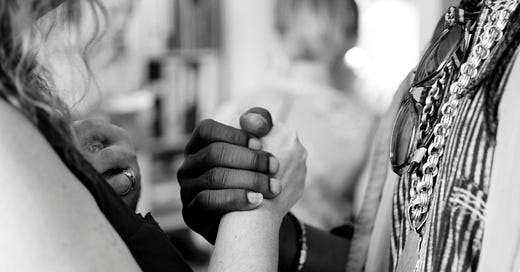As election season ramps up, tensions are high, and conversations can turn from friendly to fiery in seconds. It’s a time when opinions feel personal, lines get drawn, and relationships—whether at home, work, or online—face unprecedented strain. In such times, the art of maintaining meaningful relationships without avoiding our differences becomes crucial.
I’ve spent years helping people find common ground amid challenging discussions. My experience comes from my own journey of reconciliation and resilience. Years ago, after I was outed in my conservative Mississippi hometown, the world I knew turned upside down. I faced rejection from family, friends, and my community. It was one of the hardest times in my life, but ultimately, I chose to return to Mississippi. I wanted to reconnect, to rebuild, and to understand those who had once closed their hearts to me. This journey taught me that empathy, courage, and authenticity are not only essential in healing wounds but also in navigating tough conversations.
Here’s what I’ve learned about how to have hard discussions this election season without jeopardizing your relationships:
1. Empathy in Action
Empathy doesn’t mean you have to agree. It means you’re willing to listen and understand another’s perspective without judgment. When entering a conversation about a contentious issue, take a moment to set aside your assumptions. Focus on listening, not to refute or debate, but to understand. Simple shifts like asking, “Can you share more about why you feel this way?” can create openings for honest dialogue.
Tip: When the conversation starts getting heated, pause and check in with yourself. Ask, “Am I here to connect, or am I here to convince?” This reminder can reframe your intentions and help you focus on empathy.
2. Setting Boundaries with Respect
Setting boundaries isn’t about shutting people out. It’s about protecting the emotional space for both you and the person you’re speaking with. Sometimes, our opinions can spark intense emotions, leading us to say things we don’t mean or take on emotional weight we’re not ready for.
Tip: If the conversation veers into territory that feels too personal or overwhelming, it’s okay to gently say, “I respect that this matters to you, but for the sake of our relationship, I’d like to pause and revisit this another time.” Boundaries allow for both people to feel heard while keeping the relationship safe from resentment or burnout.
3. Go Beyond Agreeing to Disagree
Too often, we end conversations with, “Let’s just agree to disagree.” But that can be a surface-level solution, leaving issues unresolved and potentially leading to frustration. Real understanding is possible, even if you don’t ultimately agree. Ask yourself, “What can I learn from this person’s experience?”
Tip: Try exploring the underlying values behind each perspective. For instance, if a friend feels strongly about an issue, ask about the life experiences that shaped their view. Acknowledging the values and experiences behind someone’s perspective doesn’t require agreement but fosters deeper mutual respect.
4. Connection Over Conflict
In divisive times, it’s easy to get stuck in our positions, but what matters most in any conversation is maintaining the connection. Disagreement is natural, but it doesn’t have to divide us. By choosing connection over conflict, you keep the relationship intact, valuing the person over the opinion.
Tip: When a conversation feels strained, remind yourself of what you appreciate about this person. Even a quick text saying, “Thanks for sharing your perspective with me—I value our friendship,” can keep the focus on connection. Let them know their relationship with you is more important than any point of contention.
As we move through this election season, remember that conversations about politics don’t have to turn into battles. Instead, they can be opportunities for growth, understanding, and even healing. With empathy, respect, and connection as our guides, we can build bridges instead of walls—making our relationships, and ultimately our communities, stronger.
Meagan O’Nan is an award-winning author, speaker, and expert in human connection, specializing in using vulnerable storytelling to bridge divides. She has authored three books: Creating Your Heaven on Earth, Courage: Agreeing to Disagree Is Not Enough, and Held and Free. Meagan has worked with numerous organizations including Inspire Brands, Toyota, Red Cross National, and Forbes. She received personal recognition from Desmond Tutu for a talk on forgiveness. Passionate about transforming fear into strength, Meagan lives in Starkville, Mississippi, with her wife Clare, daughter Merit, and their pets. She won North America's Largest Inspirational Speaking Competition for her speech on being outed in Conservative Mississippi by an ex-boyfriend. @megonan




